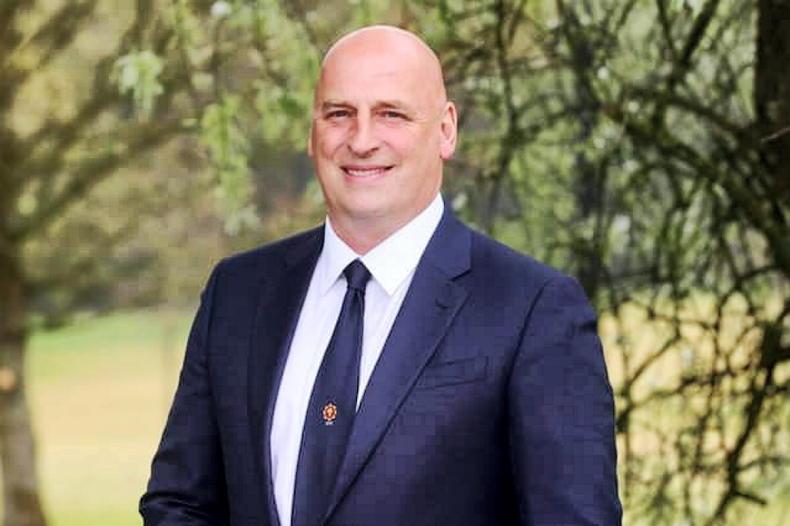It took me a long time to learn how to budget. When I was a kid, I didn’t get a weekly allowance, but I did get a lump sum of birthday and Christmas money each year. What did I do with that money? I spent it!
It burned a hole in my pocket each and every year. I wanted Barbie dolls and Disney VHS films (you won’t know what those are, but they were very important when I was a kid). If I had been more clever with my money, I could have started saving a bit each time and could have had much more to spend throughout the year.
When I “grew up” (I’m not sure I ever really grew up!), I moved to another country for work and, for the first time, I was paid once a month instead of every week or every two weeks. This made me realise how important having a budget truly is. Those last few days before pay-day can be really tough.
Now, you are not adults and you shouldn’t have to worry about money and finances the way adults do. You should be enjoying your life – helping your parents on the farm, playing with your siblings and friends and, especially now, around the holidays, you are entitled to feel very, very excited for Christmas and all the wonderful times ahead.
But it’s never a bad idea to learn how to make a budget, no matter how old you are. And it’s great to have a little extra pocket money around the holidays in case you want to buy a few gifts or maybe treat your friends to a hot chocolate. Here are some of the biggest lessons I’ve learned when it comes to saving money and making a budget.
1 You don’t need to set up a bank account to manage your finances
There are some great bank account options out there for young people aged 7-11. ESB, AIB, Bank of Ireland, An Post and the Credit Union all have options for children’s savings accounts (you will generally need a parent or guardian to help you open one of these).
But do you know what else works? Jars! Clean out some empty glass jars (big pickle jars are best, but jam jars can work, too) – with the lids – and scrub off the labels with hot, soapy water.
Ask your parents if you could purchase some sticker labels at a local office supplies shop. On one sticker, write “Now” or “Short Term” and on the other, write “Later” or “Long Term”.
2 Make some goals
You might have guessed already, but the “Now” or “Short Term” jar should be for money you plan to spend quickly – maybe on a new gagdet or on tickets to the cinema – and the “Later” or “Long Term” jar should be for something you are aiming to buy someday. Maybe you want to purchase a pedigree lamb or calf to rear all by yourself on the farm, or maybe you want new sports equipment for next year. This is your dream jar, so you save for whatever you like.
3 A realistic approach to saving money
Any time you receive some spending money – maybe for your birthday or as a weekly allowance – put at least 40% into your “Later” jar. So if you got €100, you would put at least €40 into that jar. If you got €20, put at least €8 into the “Later” jar. I say “at least” because it’s entirely up to you how much you save for your long-term goals. That said, the more you put in, the sooner you will reach that goal.
4 Make a vision board
Making your goals a reality can be hard if you don’t visualise, and seeing money in your “Later” jar building up can be very tempting. To help stick to your savings goal, why not make a poster for your room. Cut out different images from magazines, newspaper articles, or make a flow chart to colour in as you get closer and closer to reaching your goal.
5 Don’t get discouraged
Most importantly, if you’re having trouble saving money – don’t give up. Don’t just assume you’re bad with money. This is something we all learn as we grow up. Sometimes we all make rash choices when it comes to spending and our savings.
If you can get into a regular routine of saving, you’re well on the way to reaching your goals.
Read more
IFJ Junior: Designing a handling unit for your sheep flock
IFJ Junior letter: Maxxie the sheep and her boyfriend Stephen
It took me a long time to learn how to budget. When I was a kid, I didn’t get a weekly allowance, but I did get a lump sum of birthday and Christmas money each year. What did I do with that money? I spent it!
It burned a hole in my pocket each and every year. I wanted Barbie dolls and Disney VHS films (you won’t know what those are, but they were very important when I was a kid). If I had been more clever with my money, I could have started saving a bit each time and could have had much more to spend throughout the year.
When I “grew up” (I’m not sure I ever really grew up!), I moved to another country for work and, for the first time, I was paid once a month instead of every week or every two weeks. This made me realise how important having a budget truly is. Those last few days before pay-day can be really tough.
Now, you are not adults and you shouldn’t have to worry about money and finances the way adults do. You should be enjoying your life – helping your parents on the farm, playing with your siblings and friends and, especially now, around the holidays, you are entitled to feel very, very excited for Christmas and all the wonderful times ahead.
But it’s never a bad idea to learn how to make a budget, no matter how old you are. And it’s great to have a little extra pocket money around the holidays in case you want to buy a few gifts or maybe treat your friends to a hot chocolate. Here are some of the biggest lessons I’ve learned when it comes to saving money and making a budget.
1 You don’t need to set up a bank account to manage your finances
There are some great bank account options out there for young people aged 7-11. ESB, AIB, Bank of Ireland, An Post and the Credit Union all have options for children’s savings accounts (you will generally need a parent or guardian to help you open one of these).
But do you know what else works? Jars! Clean out some empty glass jars (big pickle jars are best, but jam jars can work, too) – with the lids – and scrub off the labels with hot, soapy water.
Ask your parents if you could purchase some sticker labels at a local office supplies shop. On one sticker, write “Now” or “Short Term” and on the other, write “Later” or “Long Term”.
2 Make some goals
You might have guessed already, but the “Now” or “Short Term” jar should be for money you plan to spend quickly – maybe on a new gagdet or on tickets to the cinema – and the “Later” or “Long Term” jar should be for something you are aiming to buy someday. Maybe you want to purchase a pedigree lamb or calf to rear all by yourself on the farm, or maybe you want new sports equipment for next year. This is your dream jar, so you save for whatever you like.
3 A realistic approach to saving money
Any time you receive some spending money – maybe for your birthday or as a weekly allowance – put at least 40% into your “Later” jar. So if you got €100, you would put at least €40 into that jar. If you got €20, put at least €8 into the “Later” jar. I say “at least” because it’s entirely up to you how much you save for your long-term goals. That said, the more you put in, the sooner you will reach that goal.
4 Make a vision board
Making your goals a reality can be hard if you don’t visualise, and seeing money in your “Later” jar building up can be very tempting. To help stick to your savings goal, why not make a poster for your room. Cut out different images from magazines, newspaper articles, or make a flow chart to colour in as you get closer and closer to reaching your goal.
5 Don’t get discouraged
Most importantly, if you’re having trouble saving money – don’t give up. Don’t just assume you’re bad with money. This is something we all learn as we grow up. Sometimes we all make rash choices when it comes to spending and our savings.
If you can get into a regular routine of saving, you’re well on the way to reaching your goals.
Read more
IFJ Junior: Designing a handling unit for your sheep flock
IFJ Junior letter: Maxxie the sheep and her boyfriend Stephen










SHARING OPTIONS